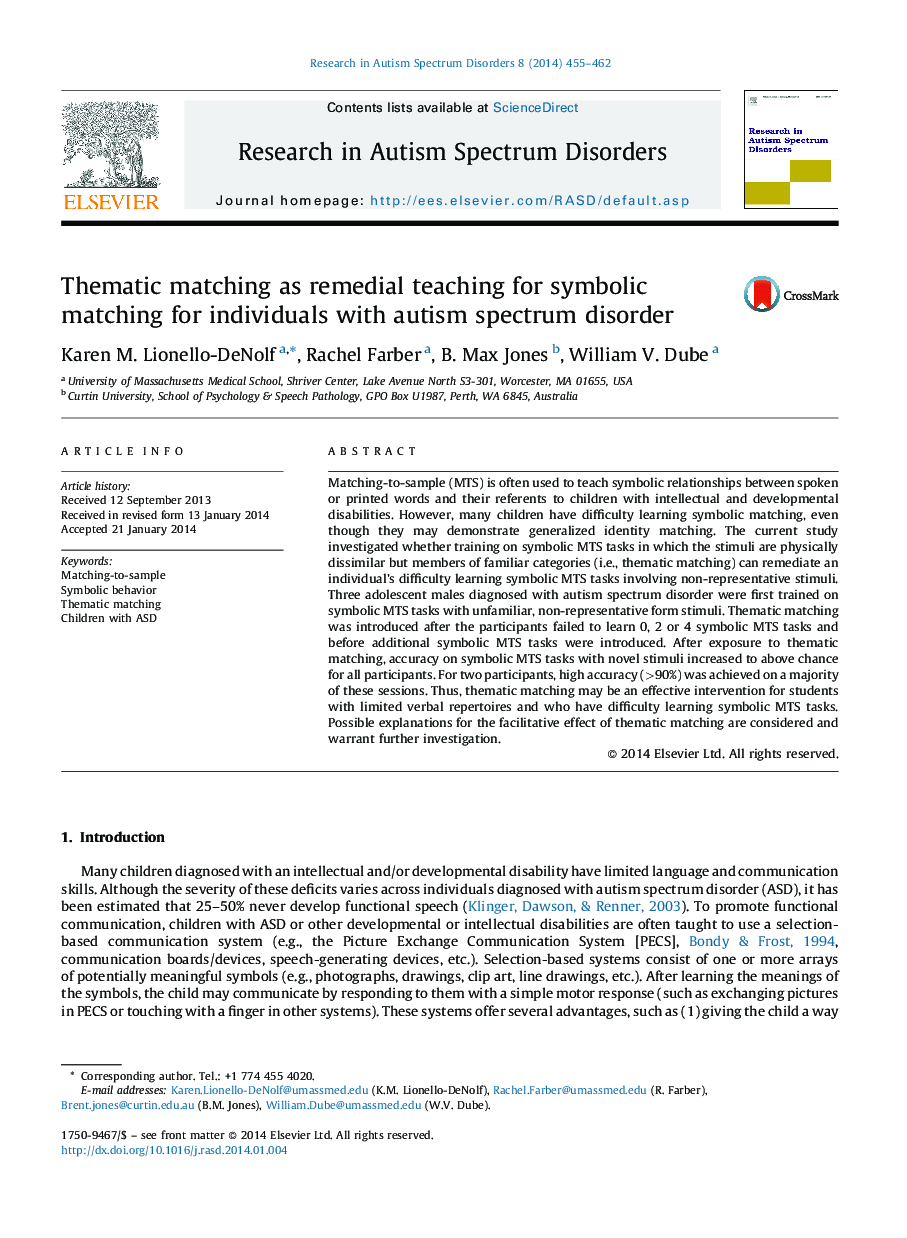| Article ID | Journal | Published Year | Pages | File Type |
|---|---|---|---|---|
| 10317175 | Research in Autism Spectrum Disorders | 2014 | 8 Pages |
Abstract
Matching-to-sample (MTS) is often used to teach symbolic relationships between spoken or printed words and their referents to children with intellectual and developmental disabilities. However, many children have difficulty learning symbolic matching, even though they may demonstrate generalized identity matching. The current study investigated whether training on symbolic MTS tasks in which the stimuli are physically dissimilar but members of familiar categories (i.e., thematic matching) can remediate an individual's difficulty learning symbolic MTS tasks involving non-representative stimuli. Three adolescent males diagnosed with autism spectrum disorder were first trained on symbolic MTS tasks with unfamiliar, non-representative form stimuli. Thematic matching was introduced after the participants failed to learn 0, 2 or 4 symbolic MTS tasks and before additional symbolic MTS tasks were introduced. After exposure to thematic matching, accuracy on symbolic MTS tasks with novel stimuli increased to above chance for all participants. For two participants, high accuracy (>90%) was achieved on a majority of these sessions. Thus, thematic matching may be an effective intervention for students with limited verbal repertoires and who have difficulty learning symbolic MTS tasks. Possible explanations for the facilitative effect of thematic matching are considered and warrant further investigation.
Keywords
Related Topics
Life Sciences
Neuroscience
Behavioral Neuroscience
Authors
Karen M. Lionello-DeNolf, Rachel Farber, B. Max Jones, William V. Dube,
